Beyond Human Trafficking Awareness Month: Building Change by Understanding People
Rachel’s Story
In Rachel Lloyd’s memoir, Girls Like Us, Lloyd discusses how experiences in her life made her vulnerable to human trafficking. Throughout her childhood, Lloyd dealt with various adverse experiences. She spent her childhood with an alcoholic mother and an alcoholic step-father who became angry and abusive when he drank too much. At 14, Rachel dropped out of school to support her family. During the day, she worked to help her mother pay for food and rent. During the night, Rachel drank and used drugs to cope with the pain she was experiencing at home.
At 17, Rachel decided that she could no longer live with her mother, and ran away to escape her abusive household. Soon after, Rachel met her boyfriend, JP, who she moved in and fell in love with. Shortly after they began dating, JP began to commercially sexually exploit and sex traffic Rachel to pay for his drug addiction. For years, Rachel endured constant abuse and humiliation at the hands of JP, but felt like there was no other option for her.
Rachel Lloyd, human trafficking survivor and founder of GEMS.
It took 5 years for Rachel to leave her trafficker and start a new life. After finding refuge in a church, she was able to begin her journey of recovery. At the age of 22, less than six months after arriving in the United States, Rachel was asked to join other survivors in attending the first international summit of sexually exploited youth, where they drafted the summit’s declaration and agenda for action. The success of the international summit led to Rachel presenting the declaration and agenda at the United Nations, where it was ratified by 120 countries. This inspired Rachel to create a community where youth survivors could use their voices to advocate for fellow victims of human trafficking. At the age of 23, Rachel founded GEMS (Girls Educational & Mentoring Services). Today, Rachel Lloyd is known as a national leader in the anti-human trafficking movement. Her mission is to bring a new and original voice to the movement—the survivors’. Like Rachel, many victims of human trafficking experience a multitude of social issues.
Social Issues and Vulnerability
Like Rachel, many victims of human trafficking experience a multitude of social issues. Stereotypes around trafficking survivors lead many to view people like Rachel as “troubled” or “reckless,” despite their victimization. In reality, victims of human trafficking are not “troubled” or “reckless,” they are vulnerable. They often face social issues such as violence, poverty, sexism, and homelessness. Survivors’ marginalization from overlapping social issues cause them to be more vulnerable than non-marginalized populations. This makes it easier for traffickers to prey on them.
Possible experiences that could cause an indivdiudal to be vulnerable to human trafficking. (Source: National Human Trafficking Hotline).
Kimberlé Crenshaw’s theory of intersectionality describes how factors like race, class, and gender work together and overlap with social issues. These factors make each and every survivor’s experience unique. Many survivors experience more than one form of marginalization, resulting in an overlap of vulnerabilities. When it comes to intersectionality, there is no such thing as a ‘single-issue’ problem, every factor interacts and overlaps with one another.
Our Clients
At Free to Thrive, many of our clients have overlapping vulnerabilities. For example, 25% of clients at Free to Thrive were formerly in the foster care system, 34% of our clients have experienced homelessness, and over 87% are victims of domestic violence. These statistics are important because each of these categories amplify vulnerability to the others, meaning that many of our clients fall into more than one.
Building Change By Understanding People
Many survivors of human trafficking have been victimized in various ways throughout their lives. Understanding survivors’ overlapping vulnerabilities is important because not all survivors share the same experience. Audre Lorde explains how “there is no such thing as single-issue struggle because we do not live single-issue lives.” Factors such as race, gender, and class determine the types of social issues different populations are likely to face, along with the resources that are made available to them. This makes each and every survivor’s experience unique.
At Free to Thrive, we strive to build change by understanding people. We acknowledge how every survivor has a different story to tell, while working hard to understand how overlapping vulnerabilities uniquely affect our clients. At Free to Thrive, we believe that the best way to build change is through understanding how each survivor’s experience and needs are different. This is important to us because it allows us to develop ways in which we can meet every client’s particular needs. “Building change by understanding people” was not only our 2022 Human Trafficking Awareness Month tagline – the motto guides our work at Free to Thrive every day.
About the Author: Meagan Cocuzzo is a senior at California State University, Long Beach, majoring in criminal justice and is an intern at Free to Thrive.



